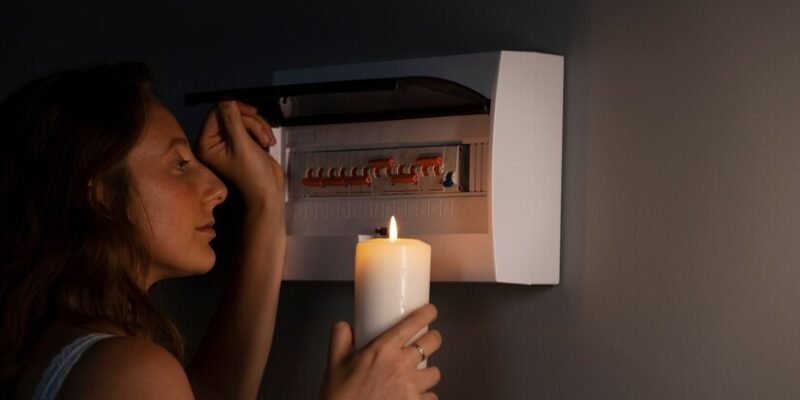A basic part of nature and one of the most used forms of energy, electricity powers our daily lives. From lights, and appliances, to automobiles and gadgets, electricity is a phenomenon on which we all depend.
Sooner or later, there occurs an electrical emergency that can either be nothing or life-threatening. Understanding what constitutes an electrical emergency and knowing what to do to stay safe can help prevent accidents.
What is an Electrical Emergency?
Electrical emergencies refers to situations where electrical systems such as outlets, plugs, or wires, pose an immediate risk of fire, shock, and injury. Understanding the different types of electrical emergencies can help you respond quickly to these situations and minimize risks.
Types of Electrical Emergency
In South Carolina (SC), Hurricane Helene whipped the Southeast where 1.2 million homes and businesses lost power. We have all experienced power outages one time or another, but if it’s only your house that’s experiencing this problem, then it’s probably your home electrical system that’s at fault.
Minor issues are DIYable, however, there are times when you have to get professional help to keep your family safe and prevent your electrical devices and systems from experiencing serious damage. Let’s take a look at some of the common type of electrical emergencies:
- Power Outages
Power cuts can occur due to heavy storms, equipment failures, or overloaded circuits. If resetting your main circuit breaker doesn’t fix it, then you need to check if it’s only your home or across a wider area.
If it’s only your home that is going through a power outage, there is likely an issue with your fuse box. If that’s the case, call up electricians in Charleston, SC and they’ll help you get back on track as fast as possible.
What to do
- Shut off the main breaker power.
- Turn off power to all appliances and outlets, leaving just one light switched on to alert you when the power’s back. This prevents sudden surges that would damage electrical systems in your home.
- If there’s a downed power line, stay well away from the affected area.
- Stay vigilant and look out for sparks or fires.
2. Electrical Fires
Electric fires are silent and disruptive threats that are caused by faulty wiring, burnt outlets, or damaged appliances.
What to do
- If electrical fires occur, never use water to extinguish it. Instead, use a Class C fire extinguisher that has been rated for electrical fires, or cut off the power source if possible.
3. Electric Shock
An electric shock occurs when an individual comes into direct contact with electricity. This can happen due to touching exposed or wet wires, repairing damaged appliances when the power is turned on, or being in contact with wet conditions near electrical outlets. Electrocution can cause severe burns, seizures, and even cardiac arrest.
What to do
- If it is safe, turn off the power at the main circuit breaker.
- Repair appliances after turning off the power.
- Avoid touching wires, or sockets with wet hands or in wet conditions.
4. Short Circuits
A short circuit occurs when electricity bypasses its intended path, leading to excessive current flow. This can cause sparks, overheating, and even fires. A short circuit is usually a sign of faulty wiring or damaged electrical components.
While circuit breakers may not pose an electrical emergency, the faulty ones do. So, if your circuit breaker box is old or outdated, it may get overloaded which can result in fires and electrocution. How to know when you need to change your box? When your box:
- Has a burning odor
- Has Burnt, scorched marks
- Is warm to the touch
- Is frequently tripping
- Has visibly damaged wires
5. Electric Surges
Power surges happen when there is a sudden spike in voltage, often caused by lightning, or power grid issues. This can damage electronics, appliances, and wiring. Therefore, even with surge protectors, it’s best to unplug sensitive devices.
6. Downed Power Lines
Severe weather, accidents, or fallen trees can bring down power lines. Live power lines are the ones that pose a serious risk of electrocution and should never be approached.
What to do
If you see a downed power line, stay at least 30 feet away and call emergency services immediately.
7. Circuit Overload
When you plug in a lot of devices into one outlet, it can overload the circuits, causing overheating and potential fire hazard. If your circuit breaker is tripping frequently, then that means your electrical system is under stress and needs to be evaluated by a professional as soon as possible.
8. Damaged Wiring
Old, exposed, or poorly installed wiring can cause electric shocks, while deteriorating and damaged insulation increases the risk of electrical fires and short circuits.
What to do
Regular electrical inspection can help prevent such hazards and address the issues on time.
9. Water Leaks
Water and Electricity do not mix! As a conductor of electricity, when water comes into contact with electrical systems, it can create a route for the current to flow where it shouldn’t. When this happens, a variety of electrical hazards take place such as corrosion of electrical wires and components, fires, and shock hazards.
10. Burnt Outlet
When you see smoke coming out of your outlet or burn marks around it, it means you likely have too many things plugged in. Touching the outlet or plugging something in will only cause electrical hazards such as shock and even electrical fires.
What to do
- Avoid touching the outlet.
- Do not plug anything in after.
- Wear nonconductive protection if you need to unplug things from it.
- Learn the wattage of your outlets ahead of time before plugging in a high-powered adapter.
- Call up professionals to fix the issue.
Final Thoughts
Electrical accidents can occur anytime, therefore, it is crucial for you to understand the types of electrical emergencies and how to deal with them before it becomes life-threatening.
If you are in an electrical emergency, stay calm, turn off the main power supply (if possible), use Class C fire extinguishers (if available), avoid wet conditions, and call up your local electricians for assistance. Following these guidelines, understanding the types of electrical emergencies, and knowing how to respond can help prevent injuries and property damage.




















